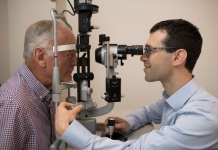Diabetes is a chronic medical condition that affects millions of people worldwide. It is characterized by elevated blood sugar levels, which can lead to a range of health complications if left unmanaged. Effective diabetes management is crucial for maintaining a good quality of life and reducing the risk of complications. In this article, we will explore the various aspects of diabetes management, including lifestyle changes, medication, monitoring, and the importance of a healthcare team.
Understanding Diabetes
Diabetes is a metabolic disorder that occurs when the body either cannot produce enough insulin (Type 1 diabetes) or cannot use insulin effectively (Type 2 diabetes). Insulin is a hormone that regulates blood sugar levels by allowing glucose to enter cells for energy. Uncontrolled diabetes can result in high blood sugar (hyperglycemia), which, over time, damages various organs and systems in the body.
Diabetes Management Goals
The primary goals of diabetes management are as follows:
- Blood Sugar Control: The central aim is to maintain blood sugar levels within a target range. This minimizes the risk of short-term complications (hypoglycemia) and long-term complications (such as heart disease, kidney problems, and nerve damage).
- Lifestyle Management: Encourage a healthy lifestyle through diet, exercise, and stress management to control blood sugar, promote overall health, and reduce the need for medication.
- Medication Management: When necessary, use medication or insulin therapy to control blood sugar levels effectively.
- Regular Monitoring: Consistently check blood sugar levels to adjust treatment plans as needed.
- Prevention of Complications: Implement strategies to reduce the risk of diabetes-related complications.
Lifestyle Changes
- Dietary Management: A balanced, controlled diet is a cornerstone of diabetes management. Focus on whole foods, including fruits, vegetables, whole grains, lean proteins, and healthy fats. Limit the consumption of added sugars, refined carbohydrates, and processed foods. Carbohydrate counting can help individuals manage their blood sugar effectively.
- Physical Activity: Regular exercise is crucial for blood sugar control. Aim for at least 150 minutes of moderate-intensity exercise per week, such as brisk walking, cycling, or swimming. Consult with a healthcare provider before starting a new exercise regimen.
- Weight Management: Achieving and maintaining a healthy weight can improve blood sugar control. Weight loss is especially important for individuals with Type 2 diabetes.
- Stress Management: Chronic stress can affect blood sugar levels. Techniques such as deep breathing, meditation, and yoga can help manage stress.
- Smoking Cessation: Smoking is a risk factor for diabetes-related complications. Quitting smoking is essential for overall health.
Medication Management
In some cases, lifestyle changes may not be sufficient, and medication may be necessary. Common types of diabetes medications include:
- Oral Medications: These are often prescribed for Type 2 diabetes and include options like metformin, sulfonylureas, DPP-4 inhibitors, and SGLT2 inhibitors. They work in various ways to lower blood sugar levels.
- Insulin Therapy: People with Type 1 diabetes and some with Type 2 diabetes may require insulin therapy. There are different types of insulin, each with unique properties, including rapid-acting, long-acting, and intermediate-acting.
- Injectable Medications: GLP-1 receptor agonists are a type of injectable medication used for Type 2 diabetes. They can help lower blood sugar and promote weight loss.
Regular Monitoring
Blood sugar monitoring is essential for diabetes management. This helps individuals and their healthcare providers make informed decisions about treatment adjustments. Methods of monitoring include:
- Self-Monitoring of Blood Glucose (SMBG): Individuals can use a blood glucose meter to check their blood sugar levels regularly. This is especially important for those on insulin therapy or experiencing changes in their condition.
- Continuous Glucose Monitoring (CGM): CGM devices provide continuous data about blood sugar levels, offering insights into trends and patterns.
- Hemoglobin A1c Testing: This test measures the average blood sugar levels over the past 2-3 months. It is typically used to assess long-term blood sugar control.
Importance of Healthcare Team
Managing diabetes is a collaborative effort that involves a healthcare team, including primary care physicians, endocrinologists, dietitians, and diabetes educators. Regular check-ups and open communication with healthcare professionals are critical for successful management. They can provide guidance on medication adjustments, lifestyle changes, and addressing any concerns or questions.
Conclusion
Effective diabetes management is key to living a fulfilling and healthy life while minimizing the risk of complications associated with high blood sugar levels. By adopting a balanced lifestyle, staying on top of medications and monitoring, and working closely with a healthcare team, individuals with diabetes can take control of their condition and enjoy a good quality of life. Remember that diabetes management is a lifelong commitment, and each person’s treatment plan should be tailored to their unique needs.







